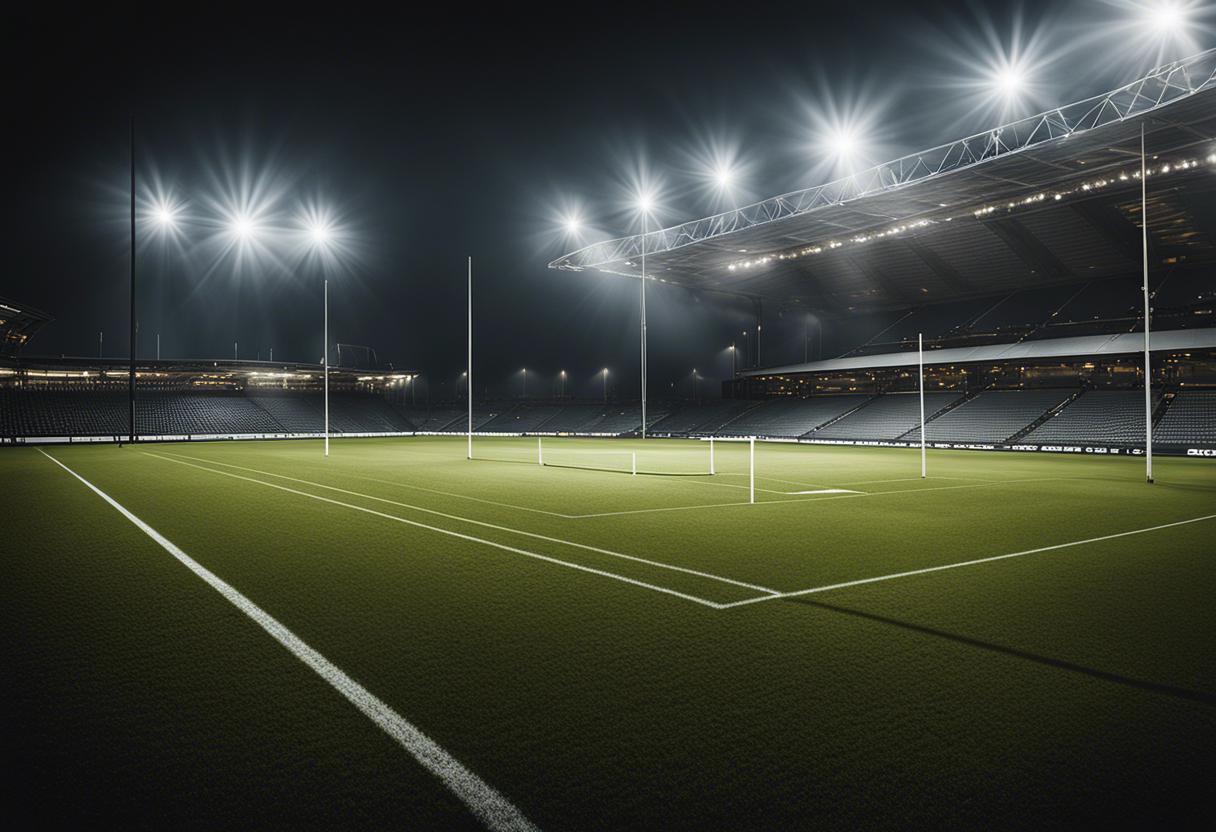In an intense rugby showdown, Ireland just barely squeezed out a victory over Scotland by a narrow margin of four points. However, it wasn’t exactly a walkover for the Irish side. In fact, the Scottish defence presented a formidable barrier, posing a challenge as unyielding as a tenacious Jack Russell refusing to let go of a trouser leg. Despite trying to mobilise their backline, the Irish side faced difficulty in penetrating the Scottish defence.
Contributing to Ireland’s victory was a fortunate seven-pointer, which could easily be compared to an ‘own goal’ in football. George Turner’s lineout throw missed its mark, landing snugly in Dan Sheehan’s lap, leaving the Irish player to do little more than touch the ball down, amounting to what must be one his simplest tries ever. Interestingly, Sheehan, the Irish hooker, now shares the top spot in the championship’s try-scoring stats with Scottish wing Duhan van der Merwe, both having scored five.
On the referee front, it’s likely that Matthew Carley had a stack of queries waiting for his attention post-match Sunday. Breakdown disputes will abound from both teams, yet other issues are also on the table to be looked into.
A focal point of contention was Tadhg Furlong’s disallowed try; an episode that requires further elucidation. It appeared to some, myself included, that the prop had validly touched down, but assistant referee Karl Dickson saw it differently. He expressed strong doubts, leading referee Carley to consult TMO Marius Jonker. The final decision was No Try, as Jonker didn’t believe there was sufficient evidence to oppose the referee’s initial judgement.
To my mind, there didn’t appear to be any instance of Furlong’s hand losing contact with the ball before his downward strike, a dominant criterion for such decisions. While Carley was content letting Jonker make the ultimate call, universally, there’s greater satisfaction when the refereeing’s outcome is determined by the man in the middle.
Likewise, it’s certain that Gregor Townsend will be seeking insights into anticipatory refereeing techniques. Caelan Doris’ offside position was bluntly pointed out by Carley before the player had a chance to enter the breakdown, prompting Doris to recede from the action without any penalty. Had it been blown, Finn Russell could have effortlessly secured three points for Scotland.
Refereeing preventive action is acceptable, as long as it’s before the players violate the rules; it should not be used, for instance, when a player is on the brink of conceding a penalty. In the grander picture, it’s glaring that Carley accused Scotland 13 times, yet only criticised Ireland four times. Townsend is bound to scrutinise all decisions, including those where penalties were not awarded against Ireland but should have been.
In Cardiff, Italy celebrated a renowned win with one of the contest’s notable tries credited to Lorenzo Pani. Wales wore shirts emblazoned with the phrase “Go Compare”, the clear connotation of which will not be repeated here. The scoreline was improved by a few late attempts at tries, although one was questionable as a possible double-movement by Will Rowlands. However, neither Mathieu Raynal nor TMO Joy Neville considered this facet when validating the touchdown.
However, Italy wasn’t concerned about this; rather, they took umbrage with the botched refereeing at the end of their game against France. Without that, they would have bagged three wins and finished fourth, also circumventing the loss of prize money.
Raynal, known for his laid-back approach, had a good game. He only interjects when needed, otherwise maintains a quiet and accurate conduct. Neil Jenkins, the water carrier, was wholly in the wrong for instigating an argument with the referee over an alleged unpunished high tackle on Tomos Williams – he must face a stern reprimand from World Rugby.
The highlight of the games was the thrilling match between France and England in Lyons, not far from the revered Burgundy vineyards. The lead fluctuated until the last minute, when a cool-headed Thomas Ramos secured victory for France with a penalty kick.
Last weekend, Angus Gardner, an Australian official, was reassigned from the match in Lyons to substitute Jaco Peyper in the game between Scotland and Italy. His commentary during the game was rather noticeable, notably his protracted and, some might say, needless discussion with England’s captain, Jamie George.
Despite a few issues, the tournament’s referees had a decent performance overall. However, there was a significant level of dissatisfaction and frustration due to two games being decided by errors towards the end – specifically, the Scotland vs. France and Italy vs. France matches. These errors were to the advantage of the French team on both instances. Had those decisions been different, their position on the final points table might have significantly declined.
On another note, the appointment of Dave McHugh from Ireland on the recently established elite referees selection panel by World Rugby is an astute acknowledgement of his expertise. Despite the scarcity of potential elite rookies worldwide, the panel has an essential task. We can only wish them success in their endeavours.

